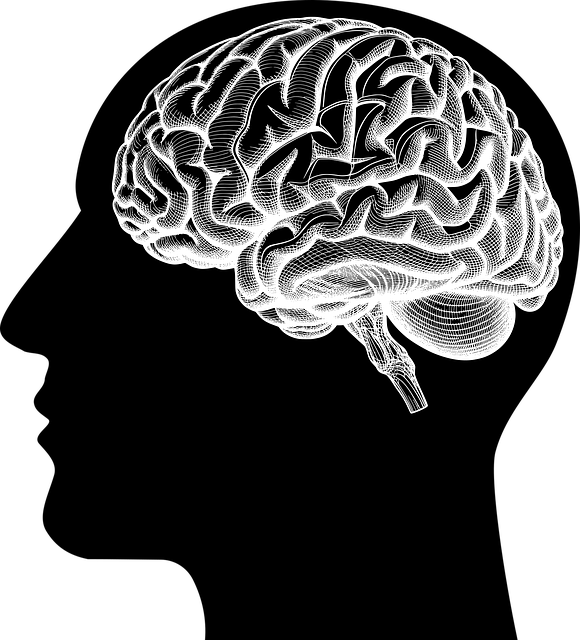Englewood Divorce Therapy emphasizes the critical link between stress management and mental health, offering specialized approaches for individuals facing life transitions or seeking improved emotional well-being. By identifying stress triggers through introspection and comprehensive risk assessments, clients develop tailored coping strategies. The therapy integrates mindfulness meditation, physical activity, gratitude journaling, and other progressive practices to reduce stress levels, enhance neurochemical balance, and promote resilience. Through these evidence-based techniques, Englewood Divorce Therapy equips individuals to manage everyday stressors, improve quality of life, and cultivate emotional awareness in a fast-paced world.
“Stress management techniques are essential tools for maintaining optimal well-being. This comprehensive guide explores effective strategies, focusing on the transformative power of Englewood Divorce Therapy. We delve into the science behind stress and its profound impact on our lives. By understanding personal triggers, we can employ coping mechanisms and practical daily techniques to mitigate stress. Furthermore, building resilience and implementing long-term prevention strategies ensure a balanced and healthy future. Embrace these teachings for a more serene existence.”
- Understanding Stress and Its Impact on Well-being
- The Role of Englewood Divorce Therapy in Stress Management
- Identifying Personal Stress Triggers and Coping Mechanisms
- Practical Techniques for Daily Stress Reduction
- Building Resilience and Long-term Stress Prevention Strategies
Understanding Stress and Its Impact on Well-being

Stress is a natural response to challenging situations, but when it becomes chronic, it can significantly impact overall well-being. Englewood Divorce Therapy recognizes that understanding stress and its effects on mental health is crucial in developing effective management strategies. Chronic stress can lead to a range of physical and emotional issues, including anxiety, depression, sleep disturbances, and even cardiovascular problems. It disrupts the body’s natural balance, affecting hormone production and neurochemical processes.
Recognizing the signs and symptoms of stress is an essential first step towards managing it. Mental Health Awareness advocates for proactive measures to mitigate stress before it escalates. Techniques like mindfulness, deep breathing exercises, and engaging in enjoyable activities can help reduce anxiety relief and promote a sense of calm. Moreover, professionals in the field should undergo a risk assessment for mental health professionals to ensure they have the tools to recognize and address their own stress levels, thereby better serving their clients.
The Role of Englewood Divorce Therapy in Stress Management

Englewood Divorce Therapy offers a unique and specialized approach to stress management, particularly for individuals navigating complex life transitions or dealing with mental health concerns. This therapeutic method recognizes the profound impact that emotional well-being has on overall health. By addressing underlying issues and providing a safe space, Englewood Divorce Therapy helps clients develop effective coping strategies to manage stress.
Through tailored sessions, therapists guide individuals in cultivating resilience and fostering positive thinking, which are essential components of mental wellness. The therapy’s focus on cultural competency ensures that diverse populations receive supportive care, reducing the barriers often associated with seeking help for mental illness. By integrating these progressive practices, Englewood Divorce Therapy empowers clients to take charge of their emotional well-being, ultimately improving their quality of life and fostering a sense of balance amidst life’s challenges.
Identifying Personal Stress Triggers and Coping Mechanisms

Understanding personal stress triggers is a crucial step in effective stress management. This process involves introspecting and identifying situations, people, or activities that consistently induce feelings of stress or anxiety. For instance, some individuals may find certain work environments overwhelming, while others might struggle with financial pressures or interpersonal conflicts. At Englewood Divorce Therapy, we emphasize the importance of recognizing these triggers to empower individuals with proactive coping mechanisms.
By acknowledging their personal stressors, people can begin to develop tailored strategies for managing them. This includes employing empathy building strategies and communication techniques learned through therapy. Furthermore, mental health professionals must conduct thorough risk assessments to understand their clients’ vulnerabilities and better equip them with resilient coping tools. Effective stress management is not one-size-fits-all; it requires a nuanced approach that respects individual experiences and challenges.
Practical Techniques for Daily Stress Reduction

In our fast-paced world, finding moments for relaxation and stress reduction is essential. Englewood Divorce Therapy offers practical techniques to help individuals manage daily stressors. One effective method is mindfulness meditation, which involves focusing on the present moment and accepting thoughts and feelings without judgment. Regular practice can significantly lower stress levels and enhance emotional well-being.
Additionally, engaging in physical activity, such as walking or yoga, releases endorphins that act as natural painkillers and mood elevators. The development of public awareness campaigns around mental health issues further plays a crucial role in destigmatizing stress and anxiety. Compassion cultivation practices, like writing gratitude journals or volunteering, foster empathy and a sense of connection, serving as valuable tools for crisis intervention guidance.
Building Resilience and Long-term Stress Prevention Strategies

Building resilience is a key aspect of long-term stress prevention, and Englewood Divorce Therapy offers valuable insights into cultivating this mental fortitude. By teaching individuals effective coping mechanisms and emotional well-being promotion techniques, therapy sessions empower clients to navigate challenging situations with greater ease. Mindfulness Meditation, for instance, has been proven to reduce stress levels and enhance overall mental wellness. This practice encourages individuals to stay present, focusing on the here and now rather than dwelling on past traumas or future worries.
In addition to mindfulness practices, keeping a Mental Wellness Journal can serve as a powerful tool for self-reflection and understanding. Through regular journaling exercises, one can track triggers, identify patterns in stress responses, and develop strategies to manage them more effectively. These long-term stress prevention strategies not only help individuals cope with everyday stressors but also foster a deeper connection with their emotional needs, ultimately promoting a sense of balance and resilience.
In conclusion, managing stress effectively is a vital component of maintaining overall well-being. By understanding the impact of stress on our lives, we can utilize powerful tools like Englewood Divorce Therapy to mitigate its effects. Throughout this article, we’ve explored various methods, from identifying personal triggers to adopting practical daily techniques, that empower individuals to take control and navigate life’s challenges with resilience. Through consistent application of these strategies, one can foster long-term stress prevention and enhance their quality of life.











